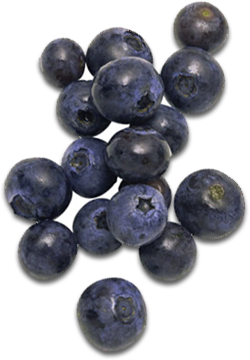no items to display
3 Myths About Men’s Health — and How to Use the Truth to Your Advantage
It’s hard to stay healthy when the health advice you hear is constantly changing. Guys, there’s a reason you’re confused: Many of the most pernicious myths have been perpetrated around men’s health. So, being that it’s Men’s Health Month, let’s take some time to separate fact from fiction.
Myth #1: You’re Probably Eating Too Much Protein
Actually, you’re probably not eating enough.
The standard advice is to eat 0.36 grams of protein per pound of body weight daily. (That equals 65 grams for a 180-pound man.) But what nobody tells you is that this formula determines the minimum amount of protein needed to avoid a slow and steady loss of lean body mass.
Active men actually require much more protein: 0.77 grams per pound of body weight for highly trained athletes (139 grams for a 180-pound man), 0.55 g/lb for men who work out for at least an hour five or more days a week (99 grams for a 180-pound man), and 0.45 g/lb for guys who hit the gym three to five days a week for 45-60 minutes (80 grams for a 180-pound man.)[i]
And while you may have heard that high protein intake is bad for your kidneys, this was just a theory that has not been borne out by scientific research.[ii] What’s important is to spread your protein intake out over the day: shoot for a 30/30/20 division of grams throughout your daily meals, rather than 10/10/60. Your body can only use so much protein at once.
One easy way to get more protein into your diet is to make a breakfast shake, on-the-go snack, or post-workout recovery drink with Juice Plus+® Complete. In addition to providing 13 grams of protein per serving, this whole-food-based beverage mix also gives you 8 grams of fiber and an array of essential vitamins and minerals — with no gluten or dairy.
Myth #2: Osteoporosis Is a Woman’s Disease
Just because you’re male doesn’t mean you don’t have to worry about osteoporosis.
Yes, the disease strikes more women than men, mainly because women have less bone mass to begin with. But it may surprise you to find out that your risk of experiencing an osteoporotic fracture after age 50 is more than double your lifetime risk of developing prostate cancer. And while women experience more fractures than men, men are twice as likely to die from them.[iii]
So what can you do? The research on calcium and bone mass is mixed, so it’s not clear whether taking calcium supplements will help. But some steps are known to work in your favor. These include getting regular, weight-bearing exercise; quitting smoking; and limiting your alcohol intake.
Importantly, long-term use of corticosteroids is the leading cause of secondary osteoporosis (in other words, osteoporosis caused as a side effect of certain medical conditions and medications). So find a better way to manage your inflammation over the long haul. Some anti-inflammatory foods you can add to your diet include omega-3-rich fish like salmon and tuna, dark leafy greens such as kale and spinach, and berries — especially blueberries. Juice Plus+ has also been shown in three separate human clinical studies to support a healthy response to inflammation.
Myth 3: It’s Normal to Gain Weight and Lose Muscle Mass after 40
It may be common, but it’s not inevitable for your body composition to shift once you pass the 40 mark.
Sure, your metabolism does slow down as you get older. But if there’s a spare tire where your abs used to be, it may not be your metabolism itself that’s the problem. It could be low testosterone that’s dragging your metabolic rate down.
Did you know that after age 40, a man’s testosterone level typically falls by 10 percent per decade? As a result, up to 25 percent of men have low testosterone levels by age 50.[iv] That’s a problem, because testosterone stimulates your metabolism, so you can efficiently burn fat and build muscle.
What’s a guy to do? An article in Men’s Health has some ideas:[v]
· First, try to trim down as much as you can. Excess weight decreases the amount of testosterone your body produces. (The best way to lose weight is to emphasize lots of fresh fruits and vegetables — which you can grow yourself in a Tower Garden — as well as protein and healthy fat, while minimizing sugar and refined carbohydrates.)
· Second, make sure you’re engaging in some kind of resistance exercise. A recent study found that men who pumped iron increased their testosterone levels by an incredible 49 percent.
· Third, eat fat. Yes, you heard that right. A low-fat diet causes testosterone levels to sink, so make sure you’re eating enough olive oil, nuts, fatty fish, and even some saturated fat from high-quality meats and cheeses.
· Fourth, go easy on the alcohol, which also has a testosterone-dropping effect.
· Finally, manage your stress. When you feel anxious, your level of cortisol (a stress hormone that increases belly fat) goes up and your level of testosterone goes down.
Hey guys, do you have any tips for men’s health that you’d like to share?
References:
[i] Steiman, Adina. The Truth About Protein. Men’s Health. April 7, 2015. http://www.menshealth.com/nutrition/protein-facts
[ii] Aragon, Alan. The Truth Behind 5 Food Myths. Men’s Health. April 30, 2015. http://www.menshealth.com/weight-loss/truth-behind-5-food-myths
[iii] International Osteoporosis Foundation. Facts and Statistics. http://www.iofbonehealth.org/facts-statistics#category-15
[iv] Hoffman, Matthew. Low testosterone: How to talk to your doctor. Web MD Men’s Health 2008. http://men.webmd.com/features/low-testosterone-how-to-talk-to-your-doctor
[v] Editors of Men’s Health. 5 Easy Ways to Increase Your Manpower. Men’s Health. Feb. 18, 2015. http://www.menshealth.com/health/5-easy-ways-increase-your-manpower






